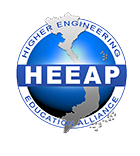Alliance will foster research collaborations with U.S., economic development and student exchange programs.
Tempe, Arizona (January 31st, 2012) ̶ Arizona State University and Intel Corp. recently renewed a joint commitment to help improve higher education and technological development in Vietnam.
Working with the Vietnamese Ministry of Education and Training, the partners have reached an agreement to expand the Higher Engineering Education Alliance Program (HEEAP).
Established in 2010 with an initial $5 million grant from the United States Agency of International Development (USAID) and Intel, the HEEAP project is administered through the Office of Global Outreach and Extended Education in ASU’s Ira A. Fulton Schools of Engineering.
HEEAP’s mission is to modernize teaching and learning methods in Vietnam’s school s of higher education as a way to support economic development in the country.
The program is providing a model for advancing engineering education to prepare engineers to support Vietnam’s growing high-tech industry.
At a recent summit meeting, leaders from the Vietnamese government and universities joined ASU and U.S. industry partners to discuss the model and the best strategies to support the transformation of Vietnam’s national education system. A memorandum of understanding signed at the summit provides a framework to establish final agreements.
“This is an evolving relationship between the U.S. and Vietnam to enhance teaching, learning and discovery and support strong economic development,” said ASU President Michael Crow.
The expanded investment commitment from the Ministry of Education and Training and Intel “will allow the HEEAP alliance to rapidly scale up the modernization of English-instructed undergraduate engineering programs modeling ABET- accredited programs in the United States,” said Jeffrey Goss, an assistant dean in the Ira A. Fulton Schools of Engineering who directs the Global Outreach and Extended Education office.
“This will also further open the door for Vietnamese and American engineering programs to work together to develop additional global engineering research, student exchange programs and other innovative partnerships,” Goss said.
The partnerships with leading technical universities and vocational colleges in Vietnam has so far enabled more than 100 faculty members from Vietnam engineering colleges to participate in instruction training programs at ASU and in Vietnam.
The new agreement, supported by a funding investment, will enable the program to increase the number of faculty members receiving training in the HEEAP education model.
“This collaboration has been instrumental in advancing our goals,” said Nguyen Vinh Hien, vice minister of Vietnam’s Ministry of Education and Training, “but we still have a need for more fundamental and comprehensive renovation of our higher education system.”
The new agreement will also support development of a distance-education network that will enable students at multiple campuses in Vietnam to take the same courses simultaneously.
In addition, it will expand a program to train Vietnamese education leaders in modern administrative, revenue-enhancement and policy development models necessary to build regionally and globally competitive institutions.
Since its inception, the HEEAP alliance has been joined by Portland State University’s Maseeh College of Engineering and Computer Science, and industry partners Siemens, Danaher and Cadence.
For more information, visit http://heeap.org/

